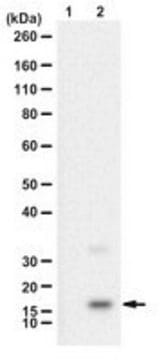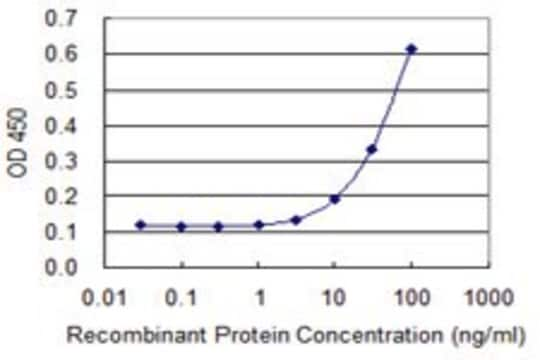SAB1402920
Monoclonal Anti-SLC5A3 antibody produced in mouse
clone 3A6, purified immunoglobulin, buffered aqueous solution
Synonym(s):
SMIT, SMIT2
About This Item
Recommended Products
biological source
mouse
conjugate
unconjugated
antibody form
purified immunoglobulin
antibody product type
primary antibodies
clone
3A6, monoclonal
form
buffered aqueous solution
mol wt
antigen ~38.1 kDa
species reactivity
human
technique(s)
capture ELISA: suitable
indirect ELISA: suitable
western blot: 1-5 μg/mL
isotype
IgG1κ
NCBI accession no.
UniProt accession no.
shipped in
dry ice
storage temp.
−20°C
target post-translational modification
unmodified
Gene Information
human ... SLC5A3(6526)
Related Categories
General description
Immunogen
Sequence
TPPPTKEQIRTTTFWSKKNLVVKENCSPKEEPYKMQEKSILRCSENNETINHIIPNGKSEDSIKGLQPEDVNLLVTCREEGNPVASLGHSEAETPVDAYSNGQAALMGE
Application
Biochem/physiol Actions
Physical form
Disclaimer
Not finding the right product?
Try our Product Selector Tool.
Storage Class
10 - Combustible liquids
wgk_germany
WGK 1
flash_point_f
Not applicable
flash_point_c
Not applicable
Certificates of Analysis (COA)
Search for Certificates of Analysis (COA) by entering the products Lot/Batch Number. Lot and Batch Numbers can be found on a product’s label following the words ‘Lot’ or ‘Batch’.
Already Own This Product?
Find documentation for the products that you have recently purchased in the Document Library.
Our team of scientists has experience in all areas of research including Life Science, Material Science, Chemical Synthesis, Chromatography, Analytical and many others.
Contact Technical Service








